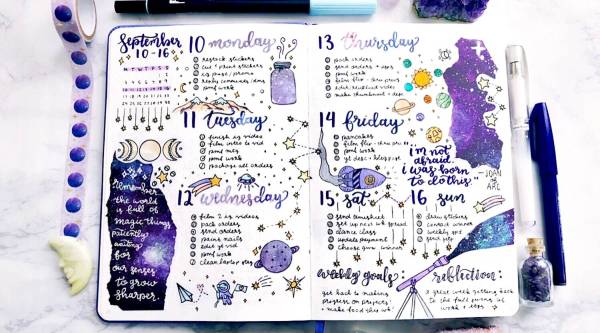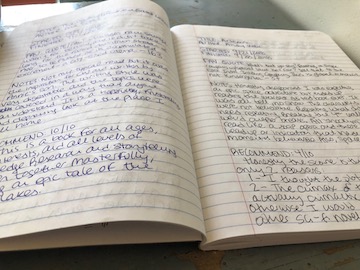
In today's fast-paced and stressful world, practicing gratitude has become increasingly important for maintaining our mental and emotional well-being. One powerful way to cultivate gratitude is through keeping a gratitude journal daily.
In this article, we will explore the top eight benefits of this simple yet transformative practice.
From improved mental health and enhanced emotional well-being to strengthened relationships and heightened gratitude awareness, discover how a gratitude journal can significantly boost your overall happiness and quality of life.
Improved Mental Health
One significant benefit of keeping a gratitude journal daily is that it can improve one's mental health. Research has shown that the act of expressing gratitude regularly can have a positive impact on an individual's overall well-being. It has been found to improve cognitive function and increase mindfulness.
By focusing on the positive aspects of life and acknowledging the things one is grateful for, individuals can experience a shift in their mindset and perspective. This practice helps to cultivate a sense of optimism and gratitude, which can lead to reduced symptoms of anxiety and depression.
Moreover, keeping a gratitude journal can also enhance self-esteem and promote a more positive outlook on life. It offers individuals the opportunity to reflect on their experiences and identify the things that bring them joy and fulfillment, ultimately contributing to improved mental health.
Enhanced Emotional Well-being
By fostering a regular practice of gratitude journaling, individuals can experience enhanced emotional well-being. Engaging in an enhanced gratitude practice allows individuals to focus on the positive aspects of their lives, which can lead to an increased positive outlook.

When individuals take the time to reflect on and appreciate the things they are grateful for, it can help shift their mindset towards a more optimistic and content state. This shift in perspective can have a profound impact on emotional well-being, as it helps individuals cultivate a sense of gratitude, happiness, and fulfillment.
Research has shown that practicing gratitude can reduce stress, improve relationships, and enhance overall life satisfaction. By incorporating gratitude journaling into their daily routine, individuals can reap the benefits of enhanced emotional well-being.
Better Sleep Quality
Improving sleep quality can be achieved through the practice of keeping a gratitude journal daily.
Studies have shown that expressing gratitude before bed can have a positive impact on sleep patterns.
By focusing on the positive aspects of one's life and acknowledging the things one is grateful for, individuals can experience better sleep.
This is because gratitude journaling helps to reduce stress and anxiety, which are common culprits of sleep disturbances.
Additionally, better sleep quality can lead to improved cognitive function and better concentration during the day.

When individuals are well-rested, their ability to focus and retain information is enhanced, resulting in increased productivity and overall well-being.
Incorporating the practice of keeping a gratitude journal into one's daily routine can significantly improve sleep quality and have a positive impact on various aspects of life.
Increased Self-esteem
Significantly, maintaining a gratitude journal daily can contribute to increased self-esteem. When individuals practice gratitude and regularly write down the things they are thankful for, it can have a positive impact on their self-image and confidence. Here are four ways in which keeping a gratitude journal can improve self-esteem:
Acknowledging achievements: Reflecting on past accomplishments and documenting them in a gratitude journal can remind individuals of their abilities and strengths, boosting their confidence.
Focusing on the positive: By consciously shifting their attention towards the positive aspects of their lives, individuals can develop a more optimistic outlook, which can lead to an improved self-image.
Recognizing self-worth: Gratitude journaling encourages individuals to appreciate their own value and worthiness, fostering a sense of self-acceptance and self-love.
Celebrating progress: Tracking personal growth and progress through a gratitude journal can enhance self-esteem by highlighting achievements and milestones along the journey of life.

Reduced Stress Levels
Keeping a gratitude journal daily can lead to reduced stress levels.
The practice of expressing gratitude has been shown to improve mental well-being, enhance emotional resilience, and increase happiness and contentment.
Improved Mental Well-Being
Remarkably, maintaining a gratitude journal daily can lead to enhanced mental well-being and a noticeable reduction in stress levels. This simple practice of expressing gratitude on a regular basis has been shown to have a positive impact on mental health.
Here are four ways in which keeping a gratitude journal can improve your mental well-being:
Promotes positive thinking: Writing down things you are grateful for helps shift your focus towards the positive aspects of your life, which can improve your overall outlook and mindset.
Increases self-awareness: By reflecting on what you are grateful for, you become more aware of your emotions, thoughts, and experiences, leading to a greater understanding of yourself.
Boosts resilience: Gratitude practices and positive psychology techniques can help you develop resilience in the face of challenges, allowing you to bounce back more easily from stressful situations.

Reduces stress levels: Regularly acknowledging and appreciating the good things in your life can help lower stress levels and promote a sense of calm and relaxation.
Incorporating a gratitude journal into your daily routine can significantly contribute to improved mental well-being and a reduction in stress levels.
Enhanced Emotional Resilience
In addition to promoting improved mental well-being, maintaining a gratitude journal daily can also lead to enhanced emotional resilience and a decrease in stress levels. Building resilience and emotional strength are important for individuals seeking freedom from stress and emotional turmoil.
By consistently acknowledging and documenting what one is grateful for, individuals can cultivate a positive mindset and develop the ability to bounce back from adversity more effectively. A gratitude journal serves as a reminder of the good things in life, helping individuals to maintain perspective and focus on the positive aspects of their experiences. This practice can reduce stress levels by shifting the focus from negative thoughts and emotions to gratitude and appreciation.
Increased Happiness and Contentment
Through the practice of maintaining a gratitude journal daily, individuals can experience a significant boost in happiness and contentment, ultimately leading to reduced stress levels. Here are four ways in which keeping a gratitude journal can contribute to increased happiness and contentment:
Increased self-awareness: Writing down things you are grateful for helps you become more aware of the positive aspects of your life, shifting your focus away from negativity and towards gratitude.
Improved outlook: Reflecting on the good things in your life through a gratitude journal can help you develop a more positive perspective, allowing you to see the silver lining in challenging situations.

Enhanced appreciation: Keeping a gratitude journal encourages you to appreciate the small joys and blessings in your daily life, leading to a greater sense of happiness and contentment.
Reduced stress levels: By focusing on gratitude, you can reduce stress and anxiety, as it promotes a sense of calm and helps you cultivate a more positive mindset.
Strengthened Relationships
Keeping a gratitude journal can have a positive impact on relationships. It enhances emotional connection, improves communication skills, and increases empathy and understanding.
By regularly expressing gratitude for the people in our lives, we become more attuned to their needs and feelings. This fosters a deeper sense of connection.
Additionally, practicing gratitude can help us become better listeners and communicators. It leads to more meaningful and fulfilling interactions with others.
Enhanced Emotional Connection
Maintaining a gratitude journal can foster deeper bonds and intimacy within personal relationships. By cultivating emotional intelligence and enhancing our connection with others, a gratitude journal can have a profound impact on the quality of our relationships.
Here are four ways in which keeping a gratitude journal can enhance emotional connection:

Increased empathy: Reflecting on the things we are grateful for helps us develop a greater understanding and empathy towards others, allowing us to connect with them on a deeper level.
Improved communication: Writing down our gratitude can help us express our appreciation and gratitude towards our loved ones, leading to more open and honest communication.
Heightened positivity: Gratitude journaling promotes a positive mindset, which in turn has a positive effect on our interactions with others, creating a more harmonious and uplifting environment.
Strengthened bonds: Regularly acknowledging and expressing gratitude for the presence and support of our loved ones strengthens our emotional connection and deepens our relationships.
Improved Communication Skills
By fostering gratitude and actively expressing appreciation, individuals can strengthen their relationships and improve their communication skills.
Keeping a gratitude journal can enhance listening skills and contribute to improved conflict resolution. When individuals practice gratitude, they become more attentive and empathetic listeners. They are able to truly understand and appreciate the perspective of others, leading to clearer and more effective communication.
Additionally, expressing gratitude fosters a positive and supportive atmosphere, making it easier to address conflicts and find resolutions. Gratitude journaling encourages individuals to focus on the positive aspects of their relationships and to communicate their appreciation to others.

This creates a culture of gratitude and open communication, which ultimately strengthens relationships and improves overall communication skills.
Increased Empathy and Understanding
Practicing gratitude through journaling cultivates a deeper sense of empathy, fostering stronger connections and understanding within relationships. Here are four ways in which keeping a gratitude journal can increase empathy and understanding, leading to happier and more fulfilling relationships:
Heightened awareness: By reflecting on and expressing gratitude for the actions and qualities of others, we become more attuned to their needs and emotions, fostering empathy and understanding.
Perspective shift: Gratitude journaling helps us see beyond our own experiences and challenges, allowing us to understand and appreciate the perspectives of others.
Improved communication: As gratitude journaling encourages us to express appreciation and acknowledgment to others, it strengthens our ability to communicate effectively and empathetically.
Strengthened bonds: By regularly expressing gratitude towards our loved ones, we deepen our connection with them, creating a positive and supportive environment that promotes understanding and happiness.
Incorporating a gratitude journal into our daily routine can therefore enhance our empathy and understanding, leading to stronger and more meaningful relationships.

Heightened Gratitude Awareness
The heightened gratitude awareness that comes from keeping a gratitude journal daily can have numerous positive effects on our mental and emotional well-being.
Gratitude practices and mindfulness exercises help us become more aware of the positive aspects of our lives, allowing us to focus on the present moment and appreciate the small joys and blessings that we may have previously overlooked.
By regularly writing down things we are grateful for, we train our minds to actively seek out the positive, which can lead to a more positive outlook on life.
This increased gratitude awareness can also enhance our relationships, as we become more appreciative of the people around us and the support they provide.
Additionally, studies have shown that practicing gratitude can reduce stress, improve sleep quality, and increase overall happiness and life satisfaction.
Boosted Overall Happiness
Keeping a gratitude journal daily has been shown to significantly enhance overall happiness levels. Here are four ways in which keeping a gratitude journal can boost your overall happiness:
Positive mindset: By practicing gratitude daily, you train your mind to focus on the positive aspects of your life. This helps you develop a more optimistic outlook and a positive mindset.

Improved mood: Expressing gratitude in a journal allows you to reflect on the good things in your life, which can improve your mood and increase feelings of happiness. It helps you appreciate the little joys and find happiness in everyday moments.
Increased self-awareness: Keeping a gratitude journal encourages self-reflection and self-awareness. It helps you become more aware of the positive experiences and relationships in your life, leading to a greater sense of happiness and fulfillment.
Reduced stress: Gratitude journaling has been found to reduce stress levels. By focusing on the positive aspects of your life, you shift your attention away from stressors and cultivate a sense of calm and contentment.
Incorporating a gratitude journal into your daily routine can have a profound impact on your overall happiness and well-being.
Frequently Asked Questions
How Long Does It Take to See the Benefits of Keeping a Gratitude Journal Daily?
The benefits of consistent gratitude journaling can be seen in as little as a few weeks. Scientific evidence supports the positive effects on well-being, mental health, and relationships. It is a simple practice that can bring significant positive changes.
Can Keeping a Gratitude Journal Help With Managing Anxiety?
Keeping a gratitude journal can be an effective tool for managing anxiety. It provides a daily practice of focusing on positive aspects of life, fostering a sense of gratitude and reducing stress. Incorporating gratitude in daily life can bring about a sense of calm and perspective.
Are There Any Recommended Techniques for Writing in a Gratitude Journal?
To stay consistent with gratitude journaling, it is recommended to set aside a specific time each day, choose a format that works best for you, focus on specific details, and reflect on the positive emotions associated with each gratitude entry.

Is It Necessary to Write in a Gratitude Journal Every Day, or Can It Be Done Less Frequently?
While it is not necessary to write in a gratitude journal every day, doing so can enhance the benefits. However, alternative frequencies, such as weekly or monthly, can still provide a positive impact on overall well-being and gratitude practice.
Can Keeping a Gratitude Journal Help Improve Physical Health as Well?
Gratitude journaling has been found to have a positive impact on overall well-being, including physical health. By focusing on gratitude, individuals may experience reduced stress levels, improved sleep quality, and enhanced immune system functioning.
 Writing TipsCreative WritingJournalingSketching TechniquesBuying GuidesPrivacy PolicyTerms And Conditions
Writing TipsCreative WritingJournalingSketching TechniquesBuying GuidesPrivacy PolicyTerms And Conditions
